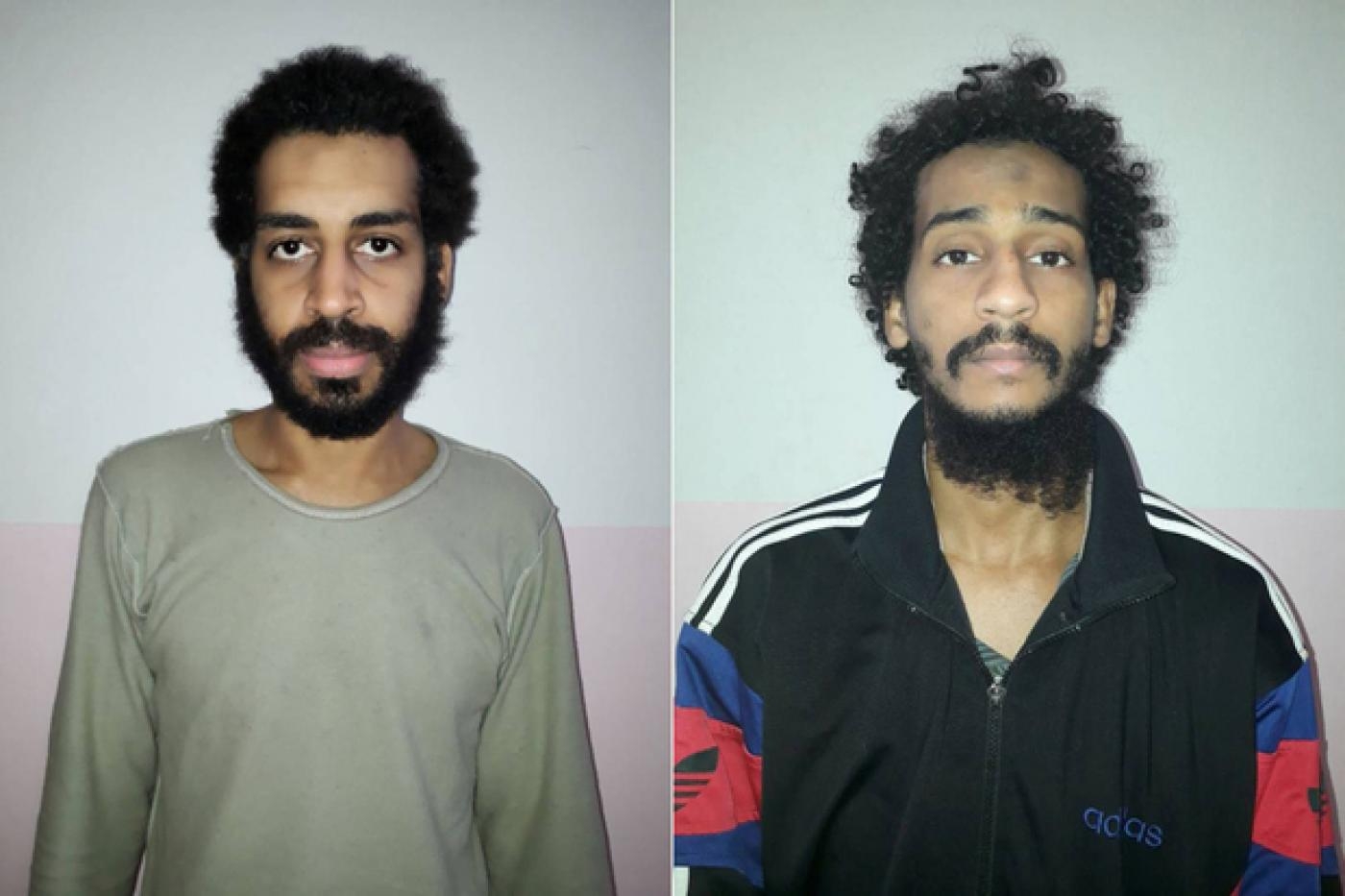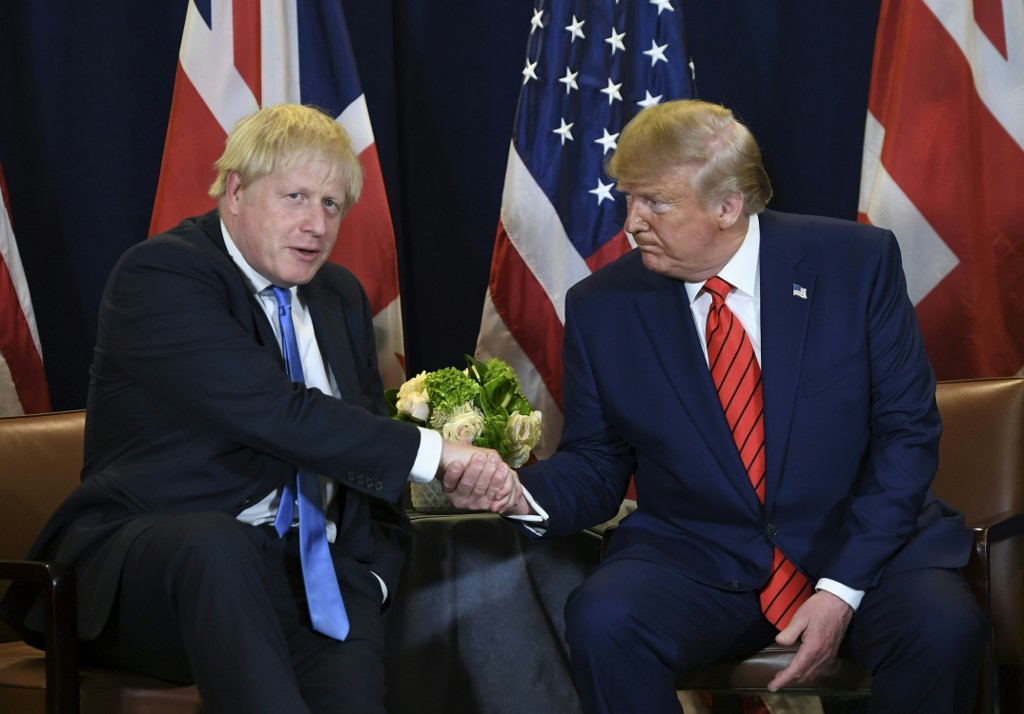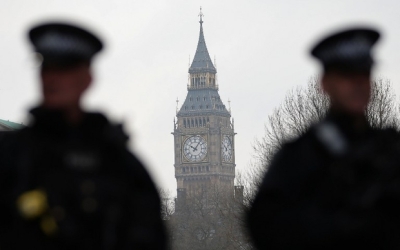Radicalisation and Islamophobia: Poverty is the hidden cause

Speaking at a press conference on Sunday where he announced the death of the Islamic State group (IS) leader Abu Bakr al-Baghdadi, the US President Donald Trump threatened to “drop” captured IS fighters on the UK border if the government does not start repatriating them from Syrian camps.
“They came from France, they came from Germany, they came from the UK. They came from a lot of countries,” he added. "And I actually said to them, if you don’t take them, I’m going to drop them right on your border and you can have fun capturing them again."
Earlier this month, US forces removed Alexanda Kotey and El Shafee Elsheikh, part of a group of IS members known as the “Beatles”, from a camp in northern Syria. The aim was to prevent them from escaping captivity, but also to potentially take them to Guantanamo Bay.
Amid pressure, the UK government has now decided to bring home children born to British citizens who were part of IS – a worthy response after the debacle in relation to the Shamima Begum case.
Both Londoners, Kotey and Elsheikh radicalised in their twenties. Their alleged IS crimes are some of the most heinous imaginable. But little is understood about how they came to be transformed into deranged executioners.
Stay informed with MEE's newsletters
Sign up to get the latest alerts, insights and analysis, starting with Turkey Unpacked
Patterns of racism
Much has to do with psychological processes that began once they arrived in Syria, although it is widely accepted that young people such as these two join radical Islamist groups due to ideological convictions.
There is a clear relationship between the social outcomes endured by young Muslims across Britain and the degree to which they sympathise with violent Islamism
Yet, the socioeconomic issues behind their motivations are often overlooked, as is the wider political and cultural fabric of the societies in which they are born and raised, and in which they face systematic patterns of racism, disadvantage and exclusion.
During its zenith, IS told potential recruits that what they endured on a daily basis meant they were not welcome in Britain, while life in Iraq or Syria would solve all of their woes. Through a widespread campaign of information dissemination and ideological communication, young people from poorer locations responded to the call.
Accounts of anti-Muslim hate rang particularly true for the vulnerable people that IS was targeting. Approximately 900 Britons made it to Iraq and Syria as the UK government celebrated preventing 150 or so from making the journey, as a senior Prevent official told me.
The Prevent strategy has been in place informally since 2003 and formally since 2006, but despite efforts to put up an engaging front, the policy remains controversial. There is a clear and direct relationship between the social outcomes endured by young Muslims in urban areas across Britain and the degree to which they sympathise with violent Islamism.
Populist contempt
The social problems facing British Muslims are aggravated by the utterances of populist figures. Islamophobia grows when political actors seek to gain capital from their insensitive contempt.
Sentiments from US President Donald Trump, which inspired the “send her back” chant in reference to a critical Muslim congresswoman, create huge damage, as does UK Prime Minister Boris Johnson’s suggestion that Muslim women donning the niqab look like “letterboxes or bank robbers”.
Such views also embolden elements of the far-right, who come to believe that their perspectives have legitimacy. It is too easy to lampoon, jest or simply snub through poisonous contempt.
Far-right groups grow due to the same set of structural challenges encountered by British Muslims, but also because of the messages they hear in the media and in politics.
In a climate of fear, hostility and intolerance reinforced by polarising politics and economics, there is a process of reciprocal radicalisation, boosted by populism. It has the effect of normalising Islamophobic attacks, which are predominantly directed towards visibly Muslim women.
The high rates of unemployment, poor health, limited housing and relative educational underachievement faced by many are ignored.
The fact that half of British Muslims live in the poorest 20 percent of areas in the country is disregarded. Structural disadvantages, combined with direct and indirect forms of racism normalised through austerity and Islamophobia, are significant social issues that receive scant attention.
The sole emphasis on political ideology leading to radicalisation is therefore misleading.
Trust deficit
Islamophobia, however, is not restricted to social and political life. It also infuses policy-making.
A vast trust deficit remains between the UK government and British Muslims. This has grown since the “war on terror”, made worse by the fact that the only meaningful terms of engagement the UK government has with British Muslims is through the discourse of extremism and terrorism.
Undoubtedly, Muslims in Britain have far greater dilemmas than radicalisation, but nowhere is this fully understood or wholly appreciated in developing policies. The wider drift towards authoritarianism, exclusivism and protectionism afflicting liberal democracies more generally is of concern.
In this climate, the UK government has blurred the line between moderate and moderated Muslims. Critics of the dominant policy outlook are sidelined by those who seek to maintain the status quo in relation to counter-extremism in particular.
This suggests a certain paranoia and pressure to conform to prevailing diktats, and to kowtow to dominant (mis)understandings of Islam and Muslims, both locally and globally.
The solutions to these issues are not half as complicated as would be imagined. Rather than concentrate on the symptoms, the root causes must be fully addressed.
A focus on social and economic conditions is essential to ensure that all groups are able to share in the fruits of opportunity and mobility. This would diminish the number of people vulnerable to both Islamist and far-right radicalisation.
A million miles away
Ideology also needs to be addressed, but this would be an easier task with the number of vulnerable people made smaller. It is also incumbent upon community and civil society organisations to maintain their efforts to engage with government and with wider communities to break down the walls of misunderstanding, intolerance and bigotry.
More should be done to remain sensitive to the social and economic realities of life for British Muslims
All of this is entirely logical, but a million miles away from the dominant threads of counter-extremism policy.
To deal with the answers to both Islamophobia and radicalisation, there needs to be much better UK government thinking on these urgent issues, but also greater honesty on the part of commissions, think-tanks, scholars and activists.
To appreciate what stimulates these young people, it is important to understand the harsh truths facing groups, especially in the poorer parts of the country. More should be done to remain sensitive to the social and economic realities of life for British Muslims.
The views expressed in this article belong to the author and do not necessarily reflect the editorial policy of Middle East Eye.
Middle East Eye delivers independent and unrivalled coverage and analysis of the Middle East, North Africa and beyond. To learn more about republishing this content and the associated fees, please fill out this form. More about MEE can be found here.







